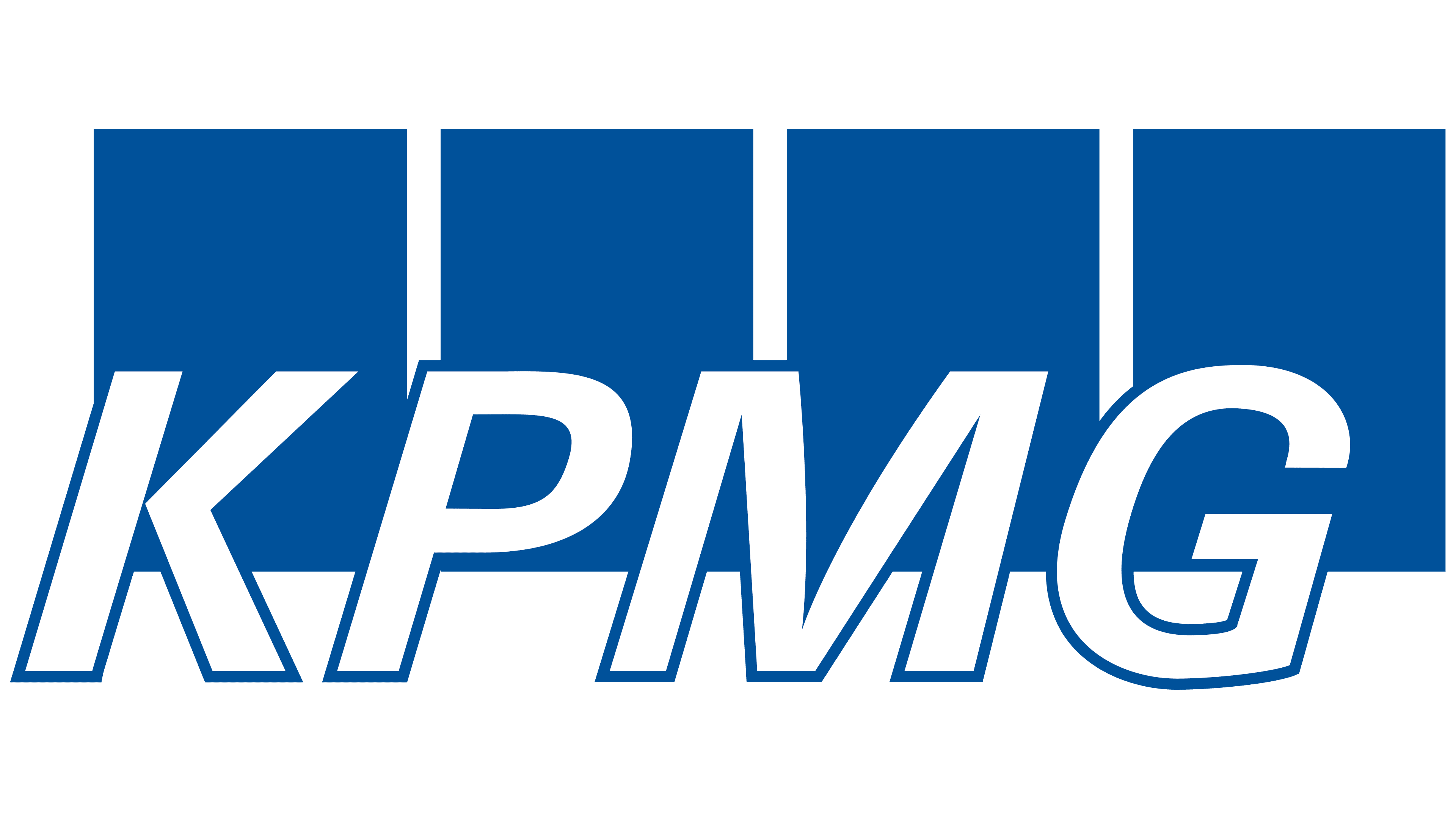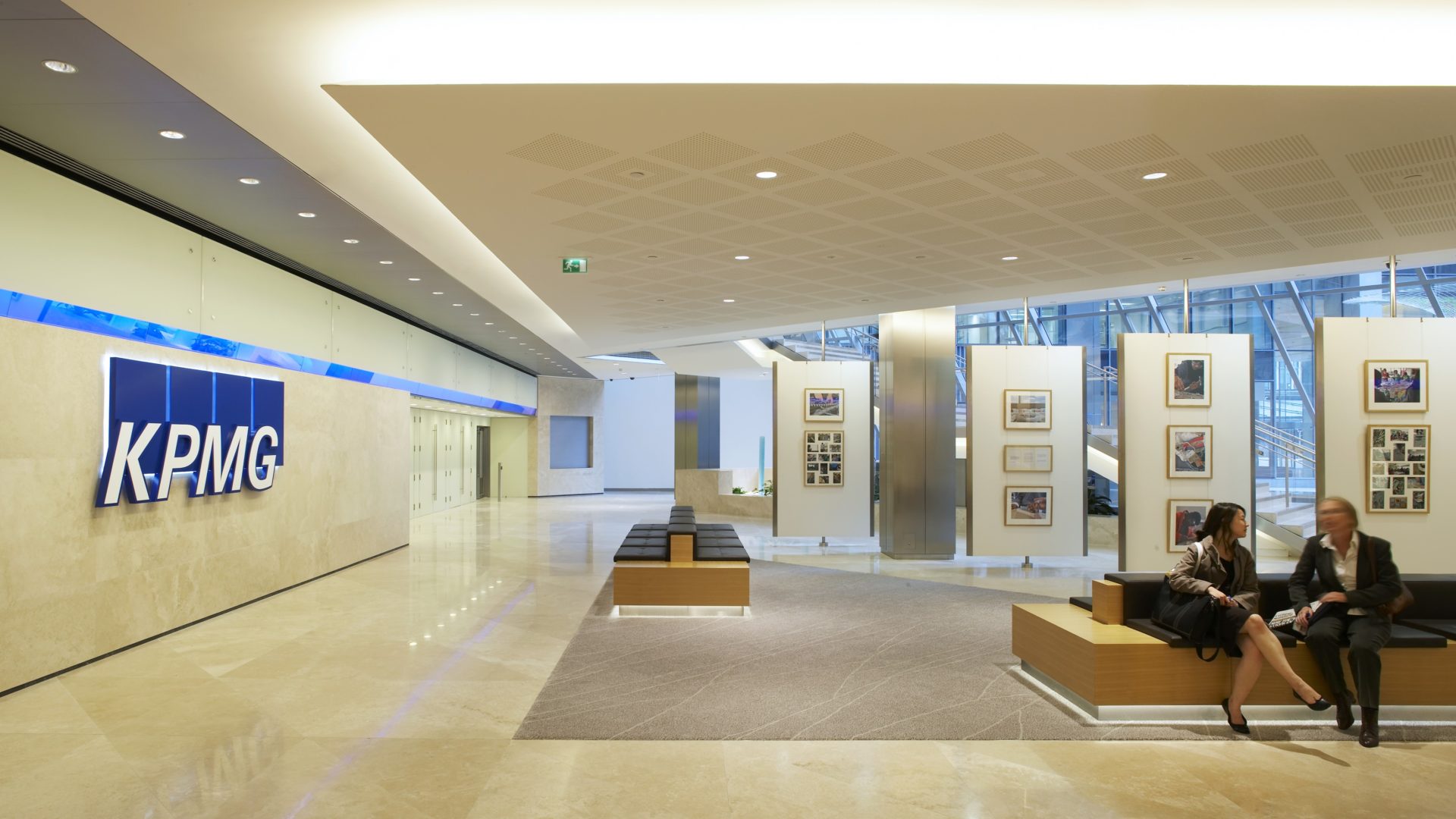
In this article, Maxime PIOUX (ESSEC Business School, Global Bachelor in Business Administration (GBBA), 2022-2026) shares his professional experience as a junior financial auditor at KPMG.
About the company
KPMG is an international audit and advisory firm founded in 1987, operating in more than 145 countries and employing over 275,000 professionals worldwide. It is part of the Big Four, alongside Deloitte, PwC and EY, which represent the leading global players in audit and advisory services.
The KPMG network supports organizations of all sizes, from small and medium-sized enterprises to large international groups, as well as public sector institutions. Its activities are primarily structured around three core business lines: audit, advisory, and accounting and tax services. Audit represents a central pillar of the firm, playing a key role in the reliability of financial information and in maintaining investor confidence in financial markets. In addition, KPMG has expanded its expertise into areas such as artificial intelligence, digital transformation, risk management and innovation, in order to address the evolving challenges of the contemporary economic environment.
In 2024, KPMG International generated revenues of USD 38.4 billion, distributed across advisory (42.5%), audit (35%), and tax and legal services (22.5%). In France, the firm reported revenues of EUR 1.55 billion, representing approximately 4% of global revenues.
Finally, KPMG became a mission-driven company in 2022, with the objective of contributing to a more sustainable and responsible form of prosperity by integrating social, environmental and ethical considerations into its activities.
Logo of KPMG.

Source: KPMG
My internship
I completed a six-month internship at KPMG Audit, in the Consumer, Media & Telecommunications (CMT) Business Unit. This department is key and dynamic within the firm, bringing together a significant number of partners and professionals specialized in audit engagements for companies operating in these sectors. Due to the size and diversity of its client portfolio, I have worked with different teams for companies of various sizes and with different business models.
A specific feature of working within an audit firm such as KPMG is the dual work environment, which combines assignments carried out directly at clients’ premises and tasks performed at KPMG’s offices, located at the Eqho Tower in La Défense. This organization facilitates better interaction with client teams while providing a collaborative working environment.
My missions
The tasks assigned to me were those typically entrusted to a junior auditor. They mainly consisted of internal control testing, which represents a core responsibility at the junior level and involves designing and formalizing controls, collecting information from client teams, and documenting the results in audit working papers. I worked across all audit cycles, with a particular focus on operating expenses (OPEX), revenues and fixed assets. I also participated in analytical reviews, aimed at analyzing the company’s business activity over a financial year, as well as impairment tests, which involved identifying and proposing potential accounting adjustments to clients. Finally, I was also asked to suggest improvements and automation solutions for Excel files used in certain time-consuming audit procedures, with the objective of smoothing audit work and improving overall efficiency.
Required skills and knowledge
Working in audit requires both strong technical skills and behavioural qualities suited to a demanding environment. At the beginning of an internship, it is essential to demonstrate commitment, rigor, and patience, as some tasks assigned to junior staff can be repetitive but are crucial to the proper execution of audit engagements, particularly tick-and-tie procedures and internal control testing. These initial assignments represent a key step in the learning process and provide an opportunity to demonstrate professionalism, reliability and work quality, which subsequently determines access to more stimulating and higher value-added tasks.
From a hard skills perspective, strong proficiency in Excel is essential, as this tool is used daily to analyze, structure, and process financial data. Solid foundations in financial accounting and a good understanding of financial statements are also required. Rigor in the preparation of clear, well-structured, and well-documented working papers is critical, as these documents constitute the core support of audit work.
In terms of soft skills, flexibility and adaptability are key. Junior auditors are required to work with different teams, on multiple engagements sometimes in parallel, and to adapt to new tools and software, whether internal to the firm or client specific. Communication is also essential, particularly to keep his in-charge informed of the progress of the work. Finally, a strong willingness to learn, commitment, and a sense of responsibility are essential qualities for progressing quickly in such a demanding environment.
What I learned
Audit is a particularly formative field, allowing to develop a rigorous work methodology and processes applicable in many professional environments. During my internship, I first developed strong technical and analytical skills. I used Excel and the firm’s internal workflows on a daily basis to document and report audit work. I also occasionally used tools such as SAP or BFC during client missions.
Beyond technical skills, this experience taught me how to structure my reasoning and develop a critical mindset when analyzing financial information. Audit work required me to question the numbers, understand their origin, and analyze their consistency across different cycles.
The internship also allowed me to develop essential professional and interpersonal skills, such as rigor, adaptability and team spirit. Working within different teams and on multiple missions taught me how to organize myself efficiently, manage priorities, and perform effectively in demanding periods, particularly during phases of high intensity related to the finalization of audit work before the signing and certification of the accounts.
Audit concepts related to my internship
I present below three concepts related to my internship:
The central role of training
I was impressed by the importance placed on training at KPMG. Every employee, regardless of their level, begins their journey with an intensive one-week training, followed by several days of online modules and numerous e-learnings throughout the year. For instance, during my internship, in addition to the initial training week for interns, I completed around ten e-learning modules over the six months, which enabled me to deepen my technical and regulatory knowledge while familiarising me with the company’s expectations. These trainings cover technical skills, such as accounting standards, obligations for listed companies, as well as ethics and compliance rules. Additional sessions are also provided at each promotion to further deepen knowledge and skills.
Completing these trainings is considered as important as the quality of daily work. In cases of repeated delays or missed deadlines, an employee’s bonus may be adjusted downwards, illustrating how seriously KPMG takes the continuous development of its teams. This constant focus on training is part of the firm’s strategy to maintain excellence in the quality of its work and to remain a trusted partner for its clients.
Completing these trainings is considered as important as the quality of daily work. In cases of repeated delays or missed deadlines, an employee’s bonus may be adjusted downwards, illustrating how seriously KPMG takes the continuous development of its teams. This constant focus on training is part of the firm’s strategy to maintain excellence in the quality of its work and to remain a trusted partner for its clients.
Audit Methodology
Another key aspect of my internship was the audit methodology. Each firm has its own methodology, a set of systematic procedures and steps that every employee must follow to analyze and evaluate a company’s financial statements. This approach ensures that the work is carried out rigorously, consistently, and in compliance with professional standards.
The methodology covers all phases of the audit, from planning to analyzing the results obtained, including risk assessment, sample selection, and the performance of tests. It allows auditors to gather sufficient and relevant evidence to form a reliable opinion on the accuracy and compliance of the financial statements. During my internship, I learned to systematically refer to it in order to organize my work and ensure that each step was properly followed.
Each firm also implements internal workflows to structure and document all work performed on an engagement. These workflows allow the harmonization of work conclusions among different team members, ensuring the consistency and clarity of the entire audit file.
The control approach
In audit, several types of approaches can be adopted, including the balance sheet approach, the systems-based approach, and the control approach. Each approach offers a structured method for identifying risks, testing transactions and ensuring that the accounts accurately reflect the company’s financial position. The choice of approach depends on the auditor’s professional judgement, the size and complexity of the company, the level of internal control in place and, in some cases, a combination of several approaches is used to best suit the engagement. During my internship, all the engagements I worked on were performed using the control approach. This method consists of assessing the effectiveness of the company’s internal procedures and controls to reduce the risk of errors or misstatements in the financial statements. In fact, the auditor determines the sample size to be tested in order to obtain a sufficient level of assurance without having to check all transactions. The sample size depends on the risk of significant misstatements, the materiality threshold, the nature of the tests performed, and the characteristics of the population being audited. This approach allows the collection of reliable audit evidence while optimizing the time and resources required for the audit.
For example, if an internal control is performed monthly (12 occurrences) by a company and the risk of misstatement is considered normal by the auditor (“base risk”), the methodology will indicate the number of occurrences to test in that specific situation (for example 5 instead of testing all 12 occurrences).
Why should I be interested in this post?
Audit is a particularly interesting option for student wishing to pursue a career in finance. It allows you to develop a rigorous work methodology, strong organizational skills, and a deep understanding of financial statements and accounting mechanisms. Working with multiple clients across different sectors also enhances open-mindedness, flexibility, and the ability to quickly adjust to various situations; qualities that are highly valued in corporate finance, consulting, or M&A roles.
Moreover, an increasing number of M&A and Transaction Services firms seek candidates with audit experience to ensure they have solid foundations (technical, analytical and professional skills). For these reasons, considering an internship or apprenticeship in audit is not only intellectually rewarding, but can also open many doors for a future career in finance.
Related posts on the SimTrade blog
▶ All posts about Professional experiences
▶ Iris ORHAND Risk-based Audit: From Risks to Assertions to Audit Procedures
▶ Annie YEUNG My Audit Summer Internship experience at KPMG
▶ Mahé FERRET My internship at NAOS – Internal Audit and Control
▶ Frederico MARTINETTO Automation in Audit
▶ Margaux DEVERGNE My experience as an apprentice student in internal audit at Atos SE, during the split of the company
▶ Louis DETALLE A quick review of the Audit job…
Useful resources
About KPMG and the consulting sector
Financial Times KPMG tax business pushes firm to faster growth than Big Four rivals
FinTech Magazine KPMG: What can Uniphore bring to financial services ?
Les Echos Concurrence : soupçons d’entente chez les géants de l’audit
Le Figaro (2025) Pourquoi les cabinets d’audit recrutent-ils désormais des ingénieurs ?
Academic resources
Appercel R., 2022, Audit et contrôle interne
Boccon-Gibod S., Vilmint E., 2020, La boite à outils de l’auditeur financier
About the author
The article was written in February 2026 by Maxime PIOUX (ESSEC Business School, Global Bachelor in Business Administration (GBBA), 2022-2026).
▶ Discover all articles by Maxime PIOUX.





